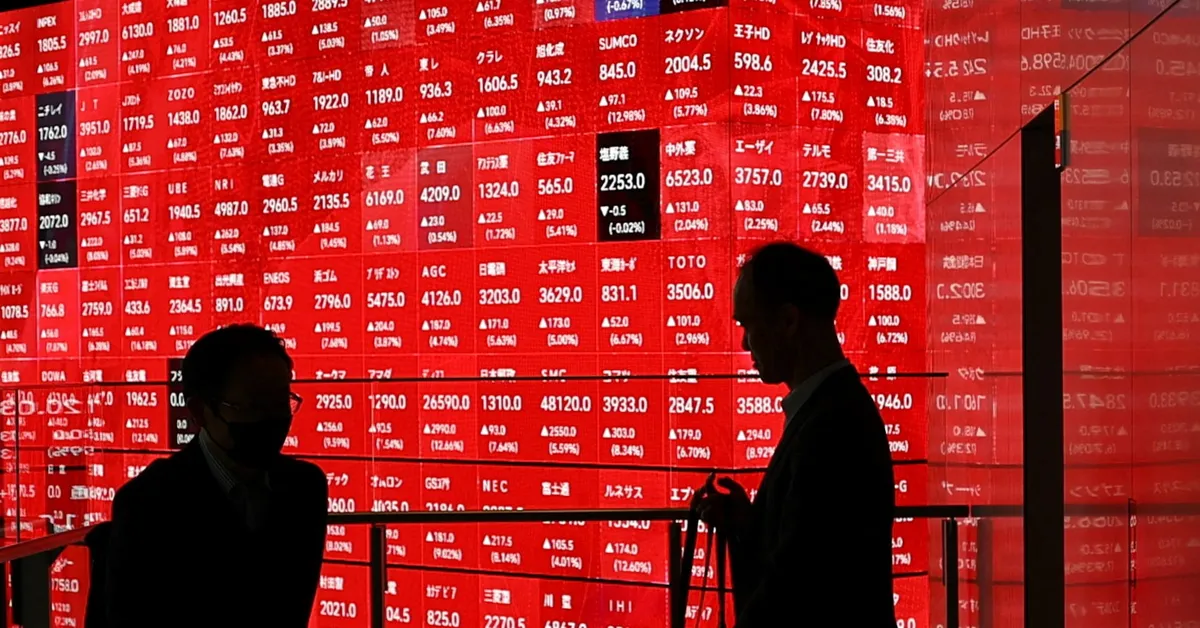
LONDON/TOKYO, May 9 - Global stock markets remained close to their highest levels in six weeks, largely driven by a recent trade agreement between the U.S. and Britain. This deal has sparked cautious optimism regarding future tariff negotiations with other nations. According to a report from Reuters, the U.S.-UK trade agreement, while criticized for being more style than substance, has nevertheless contributed to a positive market sentiment.
Kyle Rodda, a senior financial markets analyst at Capital.com, described the agreement as a general terms deal that maintains a 10% tariff on goods imported from the UK but reduces onerous U.S. tariffs on UK car exports. Under this new accord, the UK has committed to lowering its tariffs from 5.1% to 1.8% and offering greater access to U.S. products. However, Rodda emphasized that this deal primarily serves to illustrate the U.S.'s intent to swiftly negotiate trade agreements and marginally reduce tariffs and other trade barriers.
Last week, former President Trump indicated that the U.S. is exploring potential trade agreements with India, South Korea, and Japan. However, he cautioned against viewing the UK deal as a template for future negotiations, especially in light of upcoming discussions in Switzerland between U.S. Treasury Secretary Scott Bessent and chief trade negotiator Jamieson Greer with China's economic leader He Lifeng.
James Rossiter, head of global macro strategy at TD Securities, expressed concerns that the current investor trend of shifting from safe assets, like government bonds, to riskier investments such as stocks might indicate an overestimation of market optimism. "The trade deal isn't really a trade deal," Rossiter stated, highlighting that it addresses only a few specific topics. Nonetheless, he acknowledged that there has been some progress, suggesting that certain tariffs could be alleviated, although he maintains that tariffs are unlikely to disappear entirely.
The recent positive reaction to the UK trade agreement, coupled with encouraging trade figures from China, has temporarily boosted market performance. However, Rossiter cautioned that the underlying fundamentals supporting market growth are not as strong as they appear. In line with these market shifts, prices for safe-haven German Bunds fell on Friday, resulting in a rise in yields by 5.2 basis points as investors shifted their focus towards higher-yielding assets.
In the cryptocurrency market, Bitcoin surged to its highest value since January, while U.S. crude oil prices rose following a notable 3% increase on Thursday. Brent crude added 85 cents, reaching $63.70 per barrel, following a 2.8% rally the previous day. Meanwhile, NYMEX U.S. crude rose 84 cents to $60.76 per barrel, building on Thursday's gains.
According to Geoffrey Kendrick, the global head of digital assets research at Standard Chartered, the driving force behind Bitcoin's price movement has shifted from risk sentiment to the dynamics of market flows. Kendrick highlighted a significant influx of capital into Bitcoin ETFs and substantial purchases by large investors, often referred to as "whales."
In currency markets, the U.S. dollar index, which measures the dollar against six major currencies, dipped 0.3% after reaching a one-month high. The euro rebounded from its recent low, trading at $1.1257, while the British pound rose by 0.2% to $1.3270.
Overall, while the U.S.-UK trade deal has generated some positive momentum in the markets, experts caution that the broader economic landscape remains uncertain, with lingering tariffs and trade barriers that could impact future negotiations.